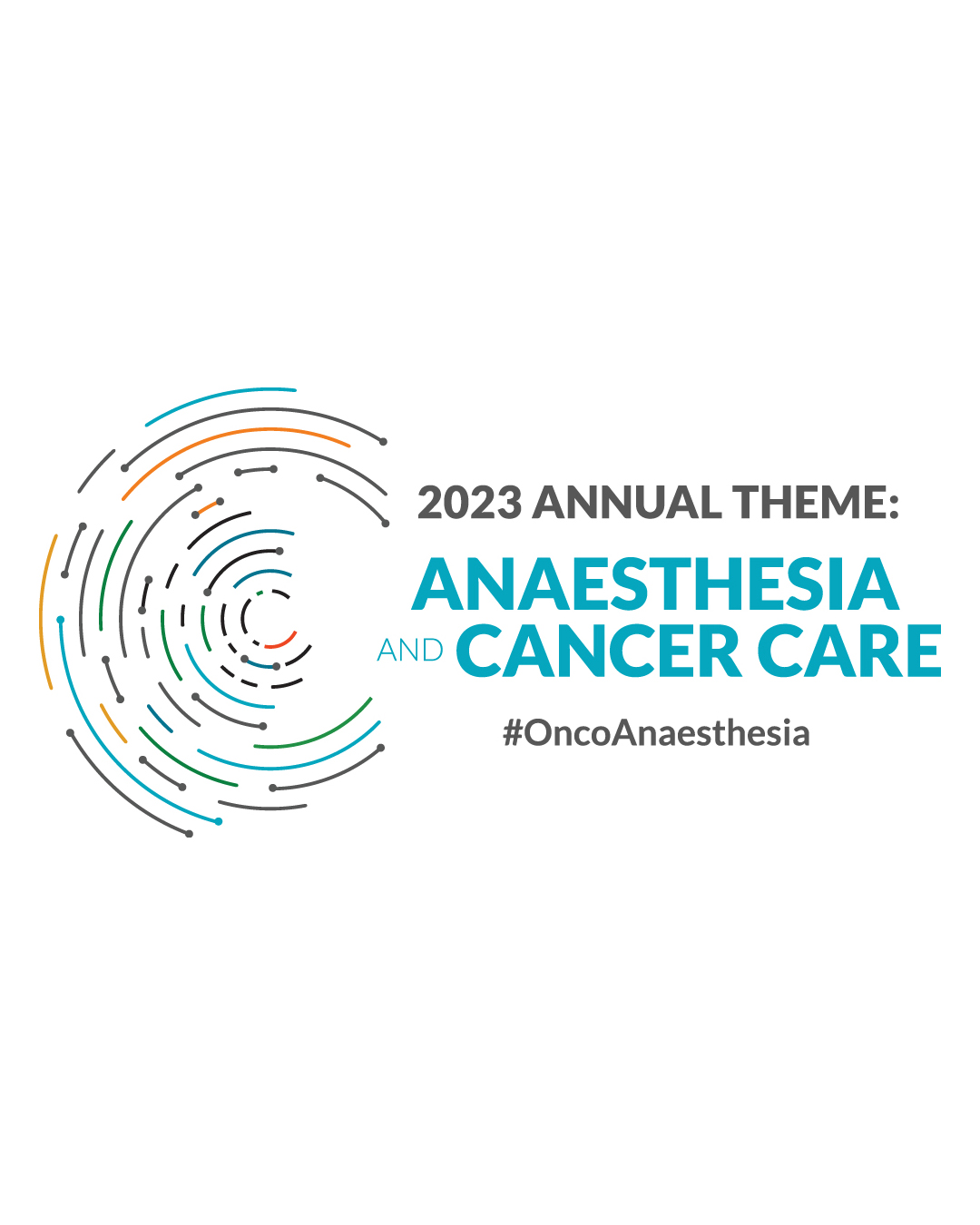WFSA President, Dr Wayne Morriss, outlines a new initiative that aims to shine a light on an issue critical to health professionals and patients worldwide.
WFSA’s inaugural Annual Theme for 2023 is Anaesthesia and Cancer Care. This year, we will be raising awareness of the vital role that anaesthesia plays in managing cancer and advocating for strengthening anaesthesia services to improve patient outcomes.
The focus on Anaesthesia and Cancer Care is particularly important as we emerge from the COVID-19 pandemic. In many parts of the world, cancer patients are not receiving the care they need because of inadequate resourcing. We need to work together to advocate for greater resourcing, identify ways to improve care and optimise patient outcomes.
The global burden of cancer
WHO estimates that 8.8 million people died worldwide in 2018 because of cancer, approximately one-sixth of the global deaths.1 This number could rise to 13.2 million by 2030 without adequate investment in cancer care.
Cancer is a label that cuts across specialities and encompasses many different disease types and treatment regimes – for example, childhood cancers versus adult cancers, cancers amenable to treatment versus those that are not, and slowly growing cancers versus those that are rapidly fatal.
The burden of cancer disproportionately affects countries with limited resources. Low- and middle-income countries (LMICs) account for approximately 80% of the disability-adjusted life years lost to cancer, but only 5% of the global resources are spent on cancer care.2 Programmes to prevent or screen for cancer may not be in place, diagnosis is likely to be late, and treatment is likely to be delayed or non-existent.
The COVID-19 pandemic has exacerbated the diversion of much-needed resources away from cancer management. A direct result is less prevention, screening, diagnosis, treatment (surgical and non-surgical), and palliative care. Globally, we face a huge backlog of surgical cases, including many essential operations for cancer.
The role of anaesthesia in cancer care
80% of patients with cancer will require anaesthesia and surgical care for treatment or palliation.
In adults, common cancers requiring surgical care include breast, bowel, and prostate cancer. Surgery for these types of cancers is simply not possible unless there is access to safe anaesthesia.
In children, anaesthesia is essential for a range of diagnostic procedures, such as CT and MRI scans and haematological procedures, as well as therapeutic procedures, such as intrathecal chemotherapy, radiotherapy and surgery.
Anaesthesia also plays vital roles in other aspect of cancer care. Anaesthesiologists, as experts in the management of acute and chronic pain, are likely to be involved in the management of patients with cancer pain and those requiring palliative care
The quality of anaesthesia care matters. Good-quality, safe anaesthesia care for cancer patients depends on well-trained anaesthesia professionals with a specialised set of knowledge and skills.
Availability and quality of anaesthesia care
The Lancet Commission on Global Surgery found that 5 billion out of 7 billion people worldwide do not have access to safe and affordable surgery when needed.3 This lack of access directly impacts the ability of health systems, especially in LMICs, to effectively manage patients with cancer.
The quality of anaesthesia care matters. Good-quality, safe anaesthesia care for cancer patients depends on well-trained anaesthesia professionals with a specialised set of knowledge and skills.
Examples include paediatric cancer patients, patients with multiple body systems affected, and patients requiring specialised therapeutic procedures and surgery.
Management of cancer patients requires well-coordinated multidisciplinary care, and anaesthesia must be seen as a core component of this and resourced appropriately.
Optimisation of care
Anaesthesia care must not be allowed to stand still while other components of cancer care move forward, for example, the development of new surgical techniques and chemotherapeutic drugs. Anaesthetic techniques, medications and other aspects of anaesthesia care affect outcomes for different types of cancer.
We need to better understand how care before, during and after surgery affects cancer recurrence and outcomes in different contexts.
More work is needed on the impact of specific techniques and medications (for example, regional anaesthesia, total intravenous anaesthesia, opioids, and anti-inflammatory medications). We should strive to optimise blood transfusion practices and develop systems to optimise multidisciplinary care.
We need to understand that one size does not fit all, and different approaches may be required in different parts of the world.
WFSA Annual Theme 2023: Anaesthesia and Cancer Care
Join us in 2023, as we raise awareness of the vital role of our speciality in the management of cancer patients. During the year WFSA will be hosting a range of expert seminars and other educational initiatives, developing fact sheets and other resources, and advocating for greater resourcing for anaesthesia so that we can optimise cancer care for our patients.
Throughout the year updates on Anaesthesia and Cancer Care can be found across our social media channels by searching for #oncoanaesthesia. Alternatively, visit the Annual Theme landing page
References
1. McQueen K, Dabo-Trubelja A. Global cancer surgery: the Lancet Commission. In Hagberg C, Gottumukkala V, Riedel B, Nates J, Buggy D (eds). Perioperative Care of the Cancer Patient. Elsevier; 2023: Ch. 2.
2. Farmer P, Frenk J, Knaul FM, et al. Expansion of cancer care and control in countries of low and middle income: a call to action. Lancet. 2010 Oct 2;376(9747):1186-93
3. Meara JG, Leather AJM, Hagander L, et al. The Lancet Commissions Global Surgery 2030: evidence and solutions for achieving health, welfare, and economic development. Lancet. 2015;386:569-624.






